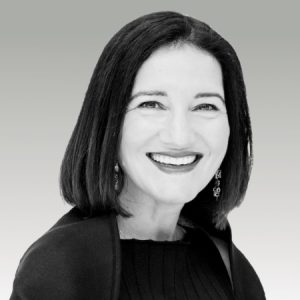
Ayse Birsel
Guest is known for...
Ayse Birsel is an accomplished industrial designer who has worked with top brands like Herman Miller, IKEA, Amazon and Toyota. She authored ‘Design the Life You Love’ and lectures on ‘Design the Work You Love’. She helps leaders and teams design their work and life using 5 principles – optimism, empathy, holistic thinking, collaboration and an open mind. She has been recognized by Fast Company and Thinkers50 Radar.
Here's what I will learn...
In this conversation, we explore various themes around how we can use Design principles to design the life that we love.
LISTEN TO THE FULL CONVERSATION
From the Podcast
Ayse speaks about her origins growing up in Turkey in a family of lawyers. She speaks about how she moved towards architecture and subsequently into Industrial Design. She goes on to describe how the Financial Crisis of 2008 got her started in the space of Life Design. Related Insights from: Bruce Feiler-70.07-Shape-Shifting instead of Resilience (https://playtopotential.com/audio/742)
Ayse speaks about why she thinks Nelson Mandela is one of the Master Designers of Life she admires. She speaks about how he evolved through the various twists and turns he went through. We connect the dots with some of the insights we learnt about Gandhiji from Dr Ramachandra Guha.
Ayse speaks about her four step deconstruction and reconstruction process that she uses in Life Design. She uses the metaphor of a Chicken Soup to make the point about deriving inspiration to create a recipe that’s unique to our life context. We connect the dots with an insight from Rama Bijapurkar in an earlier conversation where she speaks about how she drew inspiration from her role models.
Ayse reflects on the distinction between Life Design and Product Design. She speaks about the fact that in the case of Life Design, there is no “3rd party consumer” which makes it a pure process. We connect the dots with what Stew Friedman says about getting other people into our world.
Ayse speaks about how it is critical for us to get playful when we think about coming up with ideas for Life Design. She speaks about some of the warm up exercise she conducts to get people in the right frame of mind.
Ayse speaks about how long it takes for somebody to design their life. She touches upon the benefit of leveraging others’ perspectives and how we can accelerate our design process. We connect the dots with an insight from Herminia Ibarra.
Ayse speaks about the power of having creative metaphors to help us unearth possibilities. She says that sometimes thinking logically and linearly may not produce the same effect as an “Out of the box” metaphor. We also connect the dots with an insight from Prof Dan Cable where he speaks about how he uses Lego blocks with senior transitioning leaders.
Ayse speaks about how we can equip our children to design their life as they set sail on their respective journeys in a world filled with twists and turns. We connect the dots with an insight from Pramath Sinha on how we can help equip children to navigate the world of uncertainty.
Ayse speaks about how we move from getting some of these ideas cognitively to making real change happen. She speaks about the difference she made to Marshall Goldsmith and how her input helped Marshall develop the MG100 programme. We had Marshall on the podcast earlier. We connect the dots with his take on this subject.
